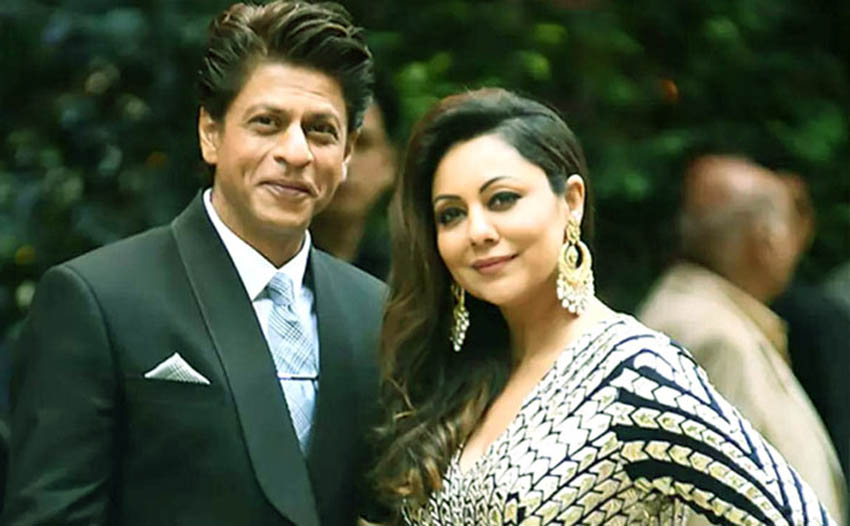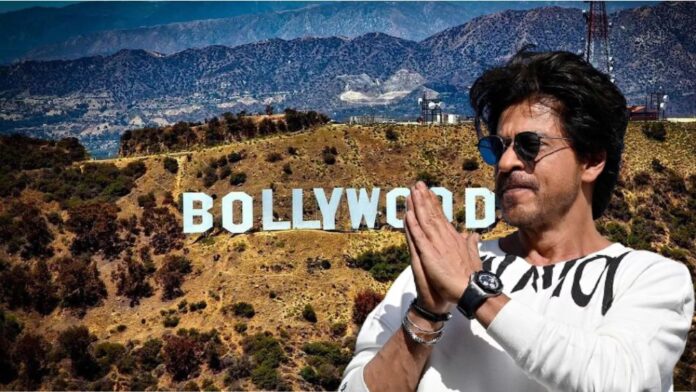In the vast tapestry of Indian cinema, there emerges a figure whose influence transcends borders, captivating hearts and minds across the globe. Shah Rukh Khan, often hailed as the “Badshah of Bollywood,” has become an indelible part of the cultural zeitgeist. Born on November 2, 1965, in New Delhi, India, Shah Rukh’s journey from a middle-class upbringing to the pinnacle of global stardom is a saga of resilience, passion, and unyielding dedication.
Page Contents
Early Life and Education
Shah Rukh Khan was born to Meer Taj Muhammad Khan, a freedom fighter, and Latif Fatima, a magistrate and social worker. The Khan family lived in the Rajendra Nagar neighborhood of New Delhi, and young Shah Rukh grew up in a modest environment. His father’s tales of struggle during the Indian independence movement instilled in him a sense of resilience and a strong work ethic.
Educated at St. Columba’s School, Khan displayed early signs of his innate charisma and leadership skills. His flair for acting and love for the stage became evident during school plays and dramas. Despite the financial constraints of his family, Shah Rukh’s parents supported his passion for arts and encouraged him to pursue his dreams.
Transition to the Silver Screen
Shah Rukh Khan’s foray into acting wasn’t an overnight success. His journey began with television, where he appeared in shows like “Fauji” and “Umeed.” While these roles showcased his potential, it was the 1992 film “Deewana” that marked his debut in Bollywood. The film’s success catapulted him into the limelight, earning him the Filmfare Best Male Debut Award.
The early years of Khan’s career were marked by a series of romantic hits, including “Raju Ban Gaya Gentleman” (1992) and “Darr” (1993). However, it was his collaboration with director Yash Chopra in “Dilwale Dulhania Le Jayenge” (1995) that established him as the quintessential romantic hero of Indian cinema. The film not only became a cultural phenomenon but also cemented Shah Rukh’s status as the “King of Romance.”
Versatility and Range
While Khan gained widespread acclaim for his romantic roles, he refused to be typecast and demonstrated his versatility by taking on diverse characters. In “Baazigar” (1992), he played an anti-hero with chilling intensity, a departure from his romantic image. This ability to seamlessly transition between genres set him apart from his contemporaries.
In the late 1990s and early 2000s, Shah Rukh Khan delivered a string of critically acclaimed performances in films such as “Dil To Pagal Hai” (1997), “My Name is Khan” (2010), and “Chak De! India” (2007). These roles showcased his acting prowess and established him as more than just a romantic lead.
Entrepreneurial Ventures
Beyond the silver screen, Shah Rukh Khan’s entrepreneurial spirit has played a significant role in shaping his legacy. In 2001, he founded Red Chillies Entertainment, a production company that has been behind numerous successful films. Red Chillies not only produced Bollywood blockbusters but also ventured into international collaborations, further expanding Shah Rukh’s global footprint.
Khan’s foray into the Indian Premier League (IPL) with the Kolkata Knight Riders (KKR) in 2008 showcased his diverse business acumen. Despite initial challenges, KKR emerged victorious in the 2012 season, bringing unprecedented joy to Kolkata and solidifying Shah Rukh’s position as a shrewd businessman.

Global Recognition and Cultural Impact
As the 21st century unfolded, Shah Rukh Khan’s influence transcended borders, earning him recognition on the global stage. He became a familiar face to international audiences through films like “My Name is Khan,” which addressed important social issues, including discrimination and Islamophobia. Khan’s nuanced portrayal of Rizwan Khan, a man with Asperger’s syndrome, earned him accolades for tackling a complex character with sensitivity and depth.
The “Badshah of Bollywood” has received numerous awards, including fourteen Filmfare Awards, and has been honored with the Padma Shri, India’s fourth-highest civilian award. In 2018, he was honored with the Crystal Award at the World Economic Forum in Davos for his leadership in championing women’s and children’s rights in India.
Shah Rukh Khan’s influence extends beyond the entertainment industry. His charm, wit, and charisma have made him a sought-after speaker at global events, including prestigious universities and international forums. His journey from a middle-class boy with big dreams to a global icon serves as an inspiration to millions.
Personal Life and Philanthropy
Amidst his glittering career, Shah Rukh Khan has maintained a balance between his professional and personal life. He married Gauri Khan in 1991, and the couple has three children—Aryan, Suhana, and AbRam. Despite the constant media scrutiny, the Khans have guarded their privacy fiercely, providing a sense of normalcy to their family life.
Shah Rukh Khan’s philanthropic efforts have been as significant as his cinematic achievements. He has been actively involved in various charitable causes, including child health and education. In 2011, Khan was appointed as the United Nations Children’s Fund (UNICEF) Goodwill Ambassador, furthering his commitment to advocating for the rights of children globally.
Challenges and Resilience
Shah Rukh Khan’s journey to superstardom has not been without its challenges. The actor faced setbacks and criticism, particularly during periods when some of his films did not perform well at the box office. However, his resilience and ability to bounce back with renewed vigor have been crucial to his enduring success.
The mid-2010s saw a series of films that did not meet the astronomical expectations associated with Khan’s name. However, instead of shying away from experimentation, he embraced diverse roles in films like “Fan” (2016) and “Raees” (2017), reaffirming his commitment to pushing creative boundaries.
Legacy and Future
As Shah Rukh Khan enters the fifth decade of his life, his influence remains unparalleled. The term “Bollywood” has become synonymous with his name for audiences around the world. His impact on Indian cinema, both as an actor and a producer, has reshaped the industry and opened new avenues for storytelling.
Beyond the cinematic realm, Shah Rukh Khan’s legacy is a testament to the power of dreams and the ability to break barriers. His journey from a middle-class boy in Delhi to a global icon mirrors the aspirations of millions who dare to dream big. As he continues to evolve as an actor, businessman, and philanthropist, Shah Rukh Khan remains an enduring symbol of inspiration for generations to come.
Conclusion
Shah Rukh Khan’s biography is not just a chronicle of a Bollywood superstar; it is a narrative of dreams materialized, challenges overcome, and a legacy etched in the annals of Indian cinema. From the streets of New Delhi to the glitzy world of Bollywood, Khan’s journey is a testament to the transformative power of passion, hard work, and resilience. As he continues to illuminate screens and hearts worldwide, Shah Rukh Khan remains an icon—an embodiment of the dreams that define the human spirit.


